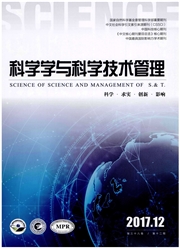

 中文摘要:
中文摘要:
科技计划是政府开展公共科技活动的基本形式。随着政府财政科技投入的持续增长,考察并评估科技计划的实际效果,已成为近20年来创新研究,尤其是创新经济学与创新政策研究关注的焦点问题。增量效应与信号功能是学者们为准确认识政府科技计划的作用,减少评估的认知偏误而逐渐发展起来的两个前沿概念。回顾上述两个概念的缘起、发展、内涵与相关的实证研究发现。未来,基于中国现实的治理情境,开展基于“增量”概念的评估研究,深入分析“信号功能”的作用逻辑。
 英文摘要:
英文摘要:
R&D program is a common form of public S&T activities. With the sustained growth of governmental S&T expenditures, research on the evaluation of R&D program has become the focus of innovation policy studies. Additionality and signal effect are two emerging concepts which could help understand the effect of R&D program more precisely and reduce the cognitive bias when evaluation. This article has reviewed the origin, development and related empirical studies on these two concepts. In the near future, based on the actual condi-tions of China, the empirical study on the additionality and signal effect as well as the underlining mechanisms.
 同期刊论文项目
同期刊论文项目
 同项目期刊论文
同项目期刊论文
 期刊信息
期刊信息
